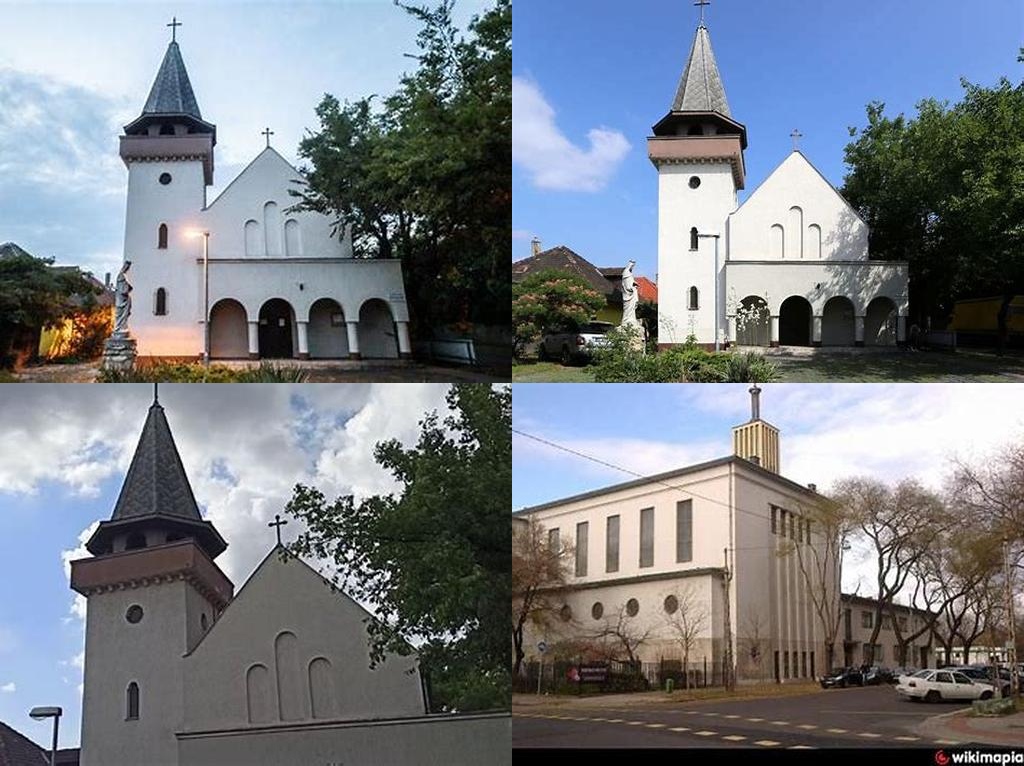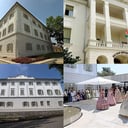
Pongrác úti Föltámadott Krisztus templom doesn’t usually appear at the top of Budapest’s must-see lists, but anyone who has wandered through the city long enough knows that it’s often the humble corners where the real stories sit. Tucked in the Józsefváros district, away from the saturated tourist bustle, the Church of the Risen Christ on Pongrác Road feels different—a living neighborhood church, sturdy and resonant with decades of resilience and quiet beauty.
The neighborhood itself, still sometimes called the Pongrácz-telep, radiates a different energy than historic central Budapest. Architecturally, the church stands out as a modest but evocative example of post-war ecclesiastic design, with a touch of Hungarian resourcefulness. Constructed during the turbulent years following World War II, the project was inaugurated in 1949, a time when much of Budapest was still clawing its way out from the devastation of war. You can feel this era’s challenges in the straightforward concrete lines and the lack of grand ornamentation, but that very simplicity becomes a kind of elegance. This is a church born not of excess but of necessity—a gathering space as shelter, and as hope. The design owes its subdued beauty to the Budapest architect László Hübner, who embraced clarity over flourish, building something that could stand both physically and spiritually for a battered community.
One of the subtle joys for architecture lovers is that blend of traditional form with a sort of hearty post-war tenacity. The compact nave, the bell tower like an unfussy exclamation mark, hints at Romanesque roots but without the costliness of stone. Inside, your focus is inevitably drawn to the main altar, where a striking painted depiction of the Risen Christ reminds visitors why the church was named so. Parochial churches like this one often get overlooked by casual tourists, but to wander here is to witness Budapest’s everyday sacredness—the local faithful quietly lighting candles, the patina of hands worn into the pews, the echo of children’s laughter during Sunday gatherings.
But to merely observe the church as a static monument is to miss its best stories. In the decades since its foundation stone was blessed, the Pongrác úti Föltámadott Krisztus templom has witnessed enormous changes. From the hard days of state-imposed atheism through to Hungary’s heady return to religious freedom in 1989, this humble space became a rare, patient outpost of faith in the shifting tides of history. During the socialist decades, when many houses of worship struggled for survival, this church doubled as a social club, a charity outreach post, and a safe place for the aging and the lonely. Its community-driven festivals and kitchen gatherings are still talked about by older residents who remember those “gray years” not just for repression but for solidarity and comfort.
For visitors, the surrounding neighborhood itself offers a human-scale Budapest far from the pageantry of the city center. Simple, lived-in apartment blocks stretch around the church, and if you come on a weekend you might encounter a small wedding party or parishioners gathering under budding trees. Just a short tram ride or hearty walk from downtown, here’s a place where Budapest locals keep faith and tradition alive not as spectacle, but as something ordinary and vital.
If you’re looking for a grand architectural spectacle or baroque excess, the Church of the Risen Christ on Pongrác Road might seem understated at first glance. Its allure, however, is cumulative—found in the warmth of community, the pride of survival, and the comfort of a building shaped by necessity rather than opulence. Spending even a little time here can leave you with a sense of the city’s quieter, resilient heartbeat—one well worth seeking beyond the postcards and guidebooks.





